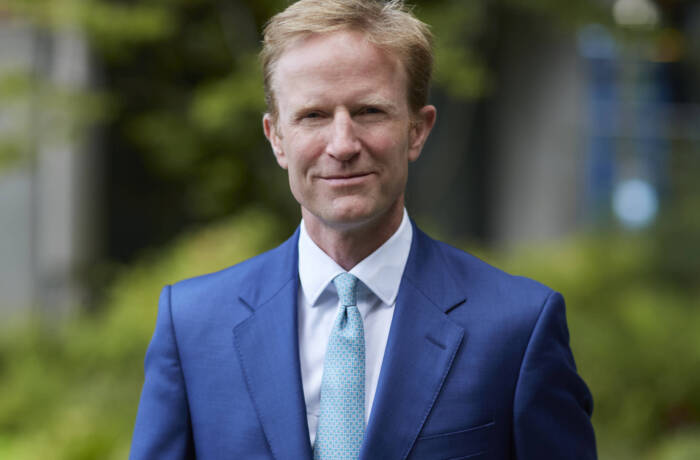
Melting glaciers will contribute to dramatic sea-level rises. Pictured: the Gornergletcher and Monte Rosa, Switzerland.

Professor Peter Newell
Academic Peter Newell made waves in the global media recently with a report describing how the wealthy have a disproportionate effect on climate change, and a duty to change their travel, business and leisure habits. As COP26 kicks off in Glasgow, he speaks to LUX about how moral duties increase with net worth
LUX: How do you define ‘unnecessary travel’?
Peter Newell: It is not for us as individuals to work out what counts as unnecessary travel: governments, cities and businesses can send clear signals about which travel is critical and which is largely unnecessary. Wealthy employers can set sustainable travel policies for their companies. But all of us can also exercise responsible self-restraint. Addressing poverty and social inequality means that carbon will inevitably and justifiably increase for some people, especially, but not exclusively, in the Global South.
To still live within tightening carbon budgets means cutting back on luxury emissions, including where travel to conferences and meetings is no longer necessary when virtual platforms can replace that need, as well as reducing frequent flying for holidays. It is worth remembering that just one per cent of people cause half of global aviation emissions.
Follow LUX on Instagram: luxthemagazine
LUX: What are the ethics of travelling for sporting events and art fairs?
Peter Newell: With finite carbon budgets that have to be shared equally, some activities become harder to justify than others. We should focus less on whether a particular event is ‘essential’, because we all feel what we do is essential, and ensure that we have sustainable and low-carbon forms of travel accessible to all. But until that’s in place, there is a need to reduce unsustainable travel through policy including taxes (to subsidise affordable, low-carbon transport), restrictions on air expansion or carbon rationing. There is an issue of collective responsibility here that trumps individual whims.
LUX: Is there any validity in the idea of personal carbon offsets?
Peter Newell: Personal carbon quotas may have some value but need to be implemented carefully. Offsets are notoriously problematic, subject to double-counting and fraudulent savings, and are really just passing the costs and the responsibility for reducing emissions onto others. Displacing responsibility is not the answer.
LUX: If wealthy individuals only do what is ‘necessary’, what’s the point of being wealthy?
Peter Newell: The issue is both how much wealth people have, because emissions are very closely related to purchasing power (to buy larger homes, cars, flights etc) and how that wealth was generated in the first place. If people make their money from activities driving the climate crisis, that is part of the problem and needs to be addressed. No amount of sustainable living will compensate for that. For wealthier people, it is also about where you invest your money and how you use your influence politically.
LUX: If everybody acts ‘correctly’, jobs will be lost in the oil, aviation and other sectors.
Peter Newell: Most discussions now are about transitions – helping workers to retrain in renewable energy industries or to work in other sectors of a sustainable economy. Research suggests most of them want a secure and reasonably paid job and have no loyalty to fossil fuel companies. There is also a need for compensation and regional development plans, the like of which have been used in helping coal-dependent regions transition to new development pathways. It is about protecting poorer workers as we make the necessary changes and redirecting the vast sums of state support in subsidies and aid that fossil fuel companies receive towards support for jobs in sustainable industries.
Read more: How Durjoy Rahman’s art foundation is promoting cultural collaboration
LUX: What of the tourism industry in the Global South?
Peter Newell: Many in the Global South are amongst the most exposed to the worst effects of climate change, a problem most who live there played little part in accelerating. For this reason, they are rightly demanding tougher action from the Global North, including reducing emissions from aviation. Small, low-lying and Caribbean island states have rightly been the champions of bolder climate action because their lives depend on it, even where some are heavily dependent on tourism. What you also might see, as we have here in the UK, is a huge boost to local economies as people holiday nearer to home. Aviation may become more sustainable through fuel and engine technology, but that will take time and clearly, for all our sakes, wealthier citizens need to reduce the amount they fly.
LUX: Is it realistic to try to recalibrate the desires and aspirations of the wealthy?
Peter Newell: Climate chaos is not a realistic or attractive prospect, but that is where we are headed. So, carrying on with business as usual is not an option. The investment and political power of the wealthy is vast and can be used to positive effect – to divest from fossil fuels, to support low carbon innovations, to use their profile and influence to back key campaigns and to pay taxes that generate the funds to address these challenges. This clearly isn’t happening on anything like the scale required. The wealthy share the same planet as the rest of us. They are part of the same society. With that comes duties and responsibilities to behave in ways that serve common interests. Planetary survival is one of those. This is a key moment for those with power, wealth and influence to use them in a bold and responsible way to safeguard all of our futures, including their own.
Peter Newell is Professor of International Relations at the University of Sussex
This article was originally published in the Autumn/Winter 2021 issue.






